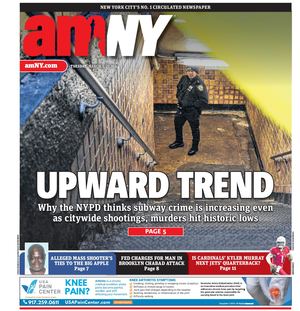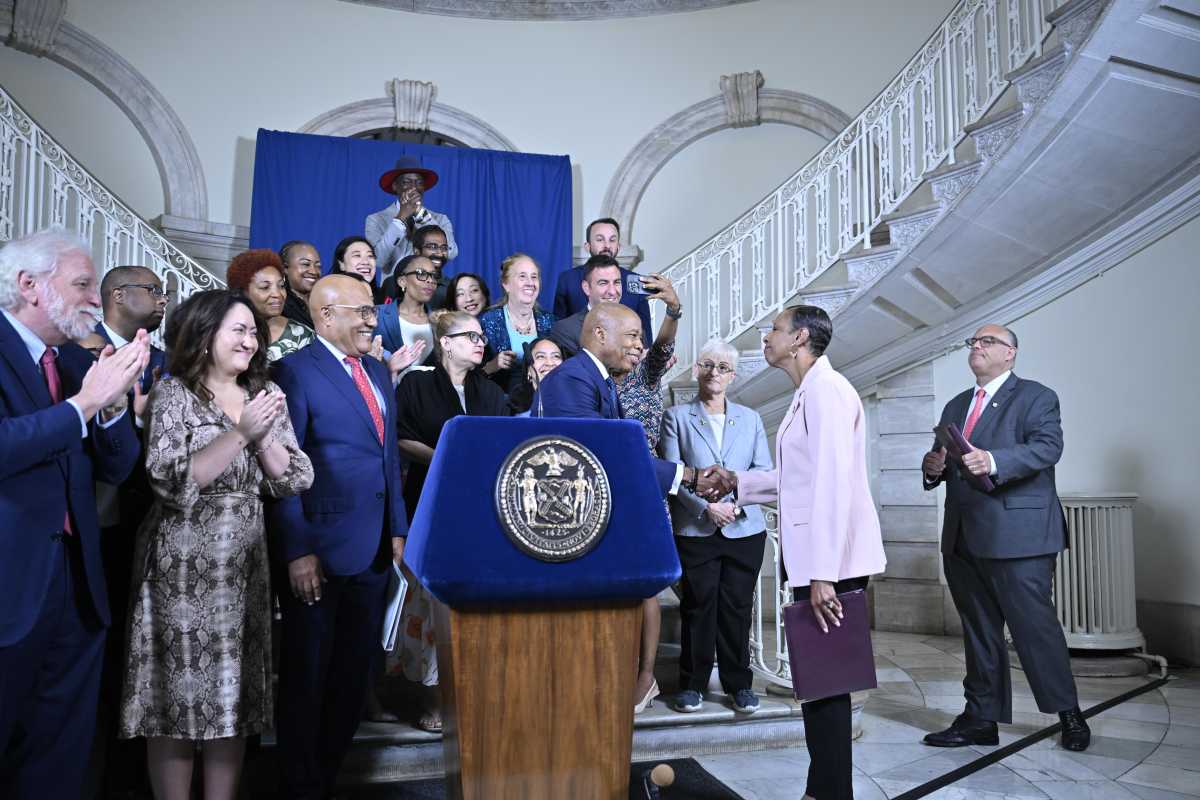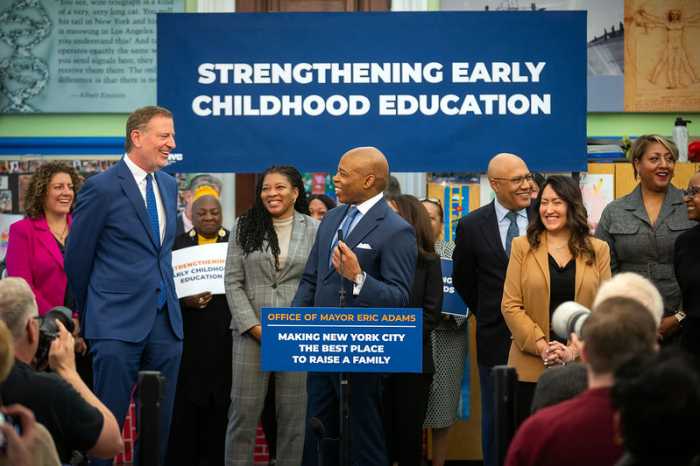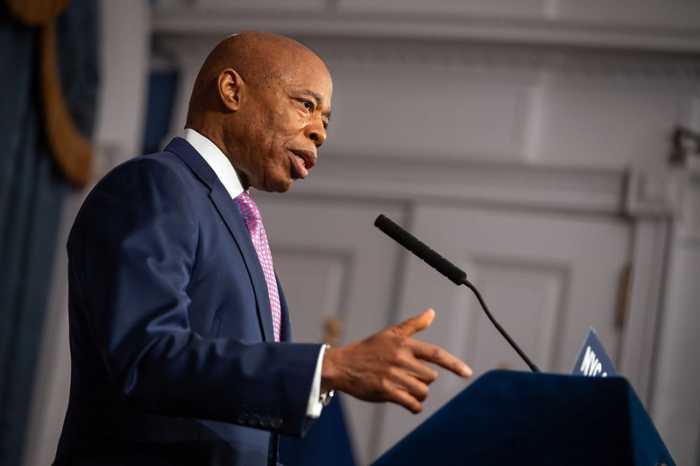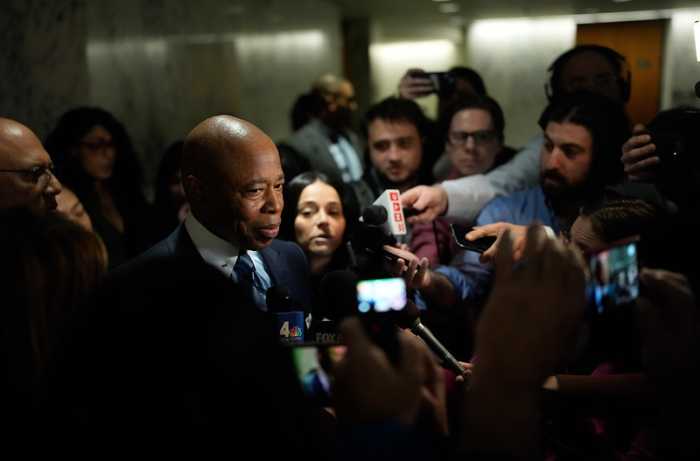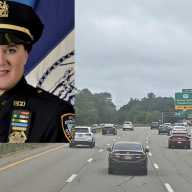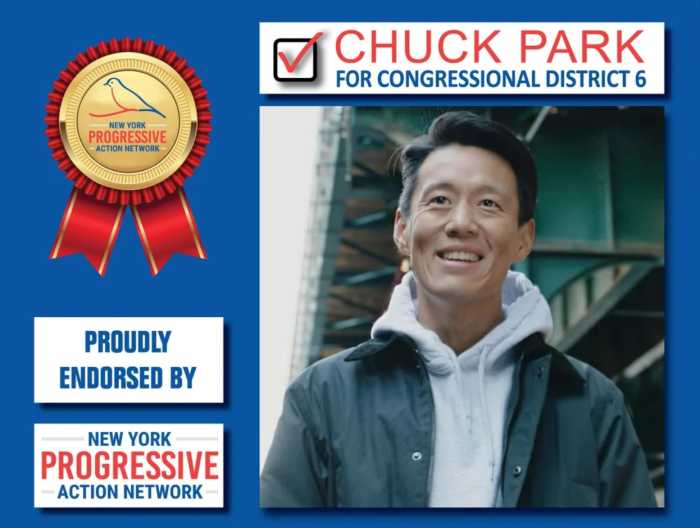Mayor Eric Adams and City Council Speaker Adrienne Adams shook hands on a nearly $116 billion city budget agreement at City Hall early Friday evening — a spending plan that looks to be filled with goodies for both sides of City Hall.
In a break from years past, defined by Mayor Adams’ wide-ranging spending cuts to account for expenses incurred by the migrant crisis, the Fiscal Year 2026 budget agreement is flush with new initiatives and recurring spending on a slew of city programs. City Council Finance Chair Justin Brannan said the plan adds $1.7 billion in new spending from the mayor’s January preliminary budget proposal.
The spending plan is both something the mayor can tout as he mounts his long-shot reelection bid this November and a win for City Council leaders who have long pushed for Adams to boost funding for vital city programs.
“I’m proud to announce that, in partnership with the speaker, Speaker Adams, the City Council, our administration is delivering a responsible, on time, and balanced Fiscal Year 2026 adopted budget that…prioritizes public safety and affordability and improves quality of life for all New Yorkers,” Adams said during a City Hall press conference where he and the speaker unveiled the deal.
The agreement comes just days before the council must vote to approve the budget by a July 1 deadline.
Speaker Adams, who appeared alongside the mayor for the first time in months since launching her failed mayoral campaign, said this year’s budget is far more focused on making new investments than restoring past cuts due to the council’s repeated advocacy under her leadership.
“While too much of our collective efforts in the past years have been spent on restoring budget cuts, our persistence and subsequent wins have led to progress in this year’s budget,” the speaker said. “I have repeatedly insisted on our need to move away from a budget of restoration to one that strengthens investments in New Yorkers this year, we are making big strides toward that goal.”
The mayor and the speaker’s once friendly relationship has turned acrimonious after numerous policy fights, the speaker calling on the mayor to resign, and then running for his job.
The budget includes $54 million in new funding for immigrant legal services; $2 million to expand Sunday service at 10 additional public library branches; $10 million to launch a pilot child care program for children under two years old; and $6.1 million to create a Division of Sustainable Delivery to oversee and regulate e-bikes.
The child care pilot program for 2-year-olds is particularly notable as Assembly Member Zohran Mamdani just appeared to win the Democratic mayoral primary on a platform that includes implementing universal free child care. The council’s push for expanding immigrant legal services comes as the Trump administration has drastically ramped up its push to deport undocumented newcomers, with arrests inside Manhattan’s federal immigration courts after migrants attend their mandated hearings becoming a regular occurrence.
“As Trump’s renewed immigration crackdown has led to an increase in ICE arrests, including the targeting of New Yorkers at immigration courthouses—spaces that are meant to deliver due process, not kidnappings—the increase to $55 million in immigration related legal services is not just timely, it’s a lifeline,” said New York Immigration Coalition President and CEO Murad Awawdeh in a statement.
The plan also includes increased spending on programs that are part of the plan to close Rikers Island and reduce recidivism. Those encompass an additional $11 million for the Intensive Mobile Treatment (IMT) program, $4.8 million for Justice Involved Supportive Housing, and $8.9 million Alternatives to Incarceration programs.
Additionally, the budget includes a $5 million boost for NYC Fair Fares, expanding access to the discounted MetroCard program by raising the eligibility threshold to New Yorkers earning up to 150% of the federal poverty level.
The plan also covers major upgrades, with $400 million set aside to cover the Fifth Avenue redesign—which involves converting the famous strip into a pedestrian-friendly boulevard—and revitalizing “The Arches,” the public space on the Manhattan side of the Brooklyn Bridge.
The budget also includes funds to make sure that the city’s goal of having 35,000 active uniformed NYPD officers on the street by Fall 2026 will be met.
However, the fiscal blueprint does not add any additional funding to the city’s general reserve, which stands at $8.5 billion, despite warnings that doing so is necessary to protect against anticipated federal funding reductions.
Andrew Rein, president of the fiscally conservative Citizens Budget Commission, said in a statement that the budget deal is “unaffordable” and leaves the city “unprepared for federal cuts.”
“Instead of putting aside $3 billion to soften the first blows of federal cuts and protect against a future recession, the budget increases spending more than twice the rate of inflation and leaves future budget gaps of more than $9 billion, after accounting for underbudgeted expenses,” Rein said.
